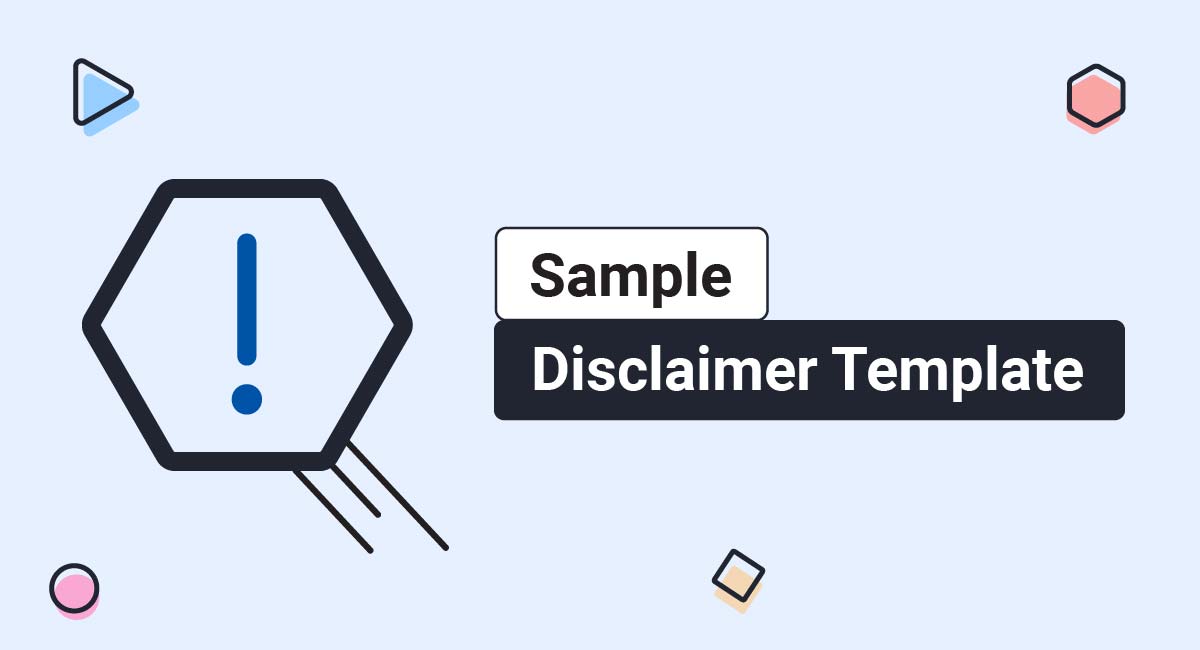

Jocelyn Mackie
Former civil litigation attorney. Content legal strategist at TermsFeed.
Reviewed by
Widener University School of Law graduate, Managing Legal Editor at TermsFeed.
A Disclaimer on your app or website is often the best way to address specific points of liability that could fall outside a Terms and Conditions agreement or a Privacy Policy agreement.
This article will discuss some of the most common and important disclaimers and what purposes they serve while showing examples from real businesses that use these disclaimers.
We've also put together a Sample Disclaimer Template that you can use to help write your own.
Our Disclaimer Generator can generate a legal disclaimer for your business, website or mobile app. Just follow these steps:
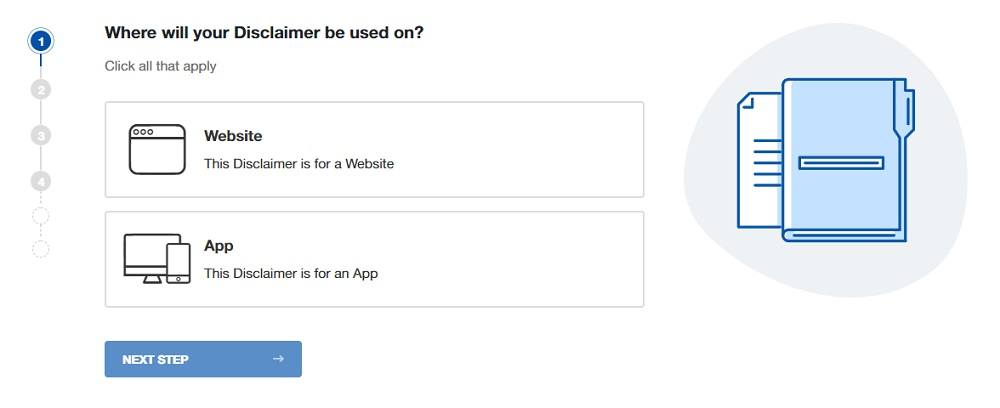
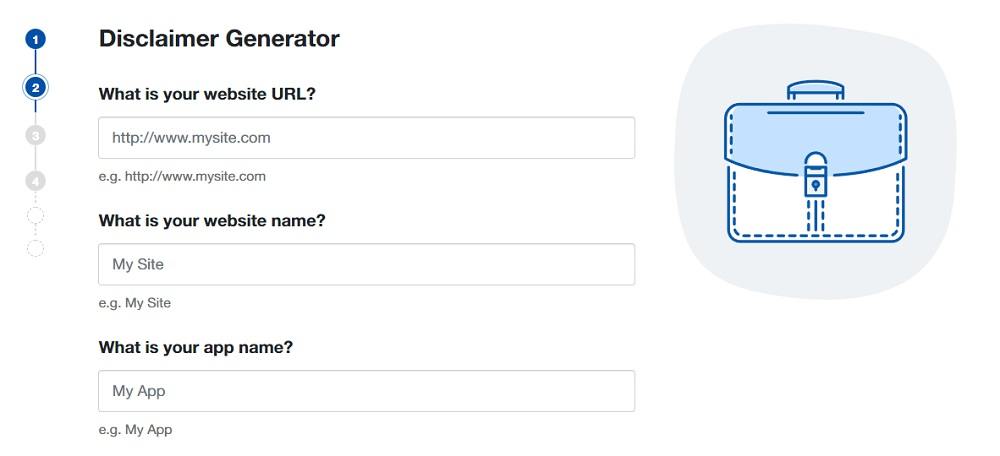 app business information - Step 2" width="1000" height="456" />
app business information - Step 2" width="1000" height="456" />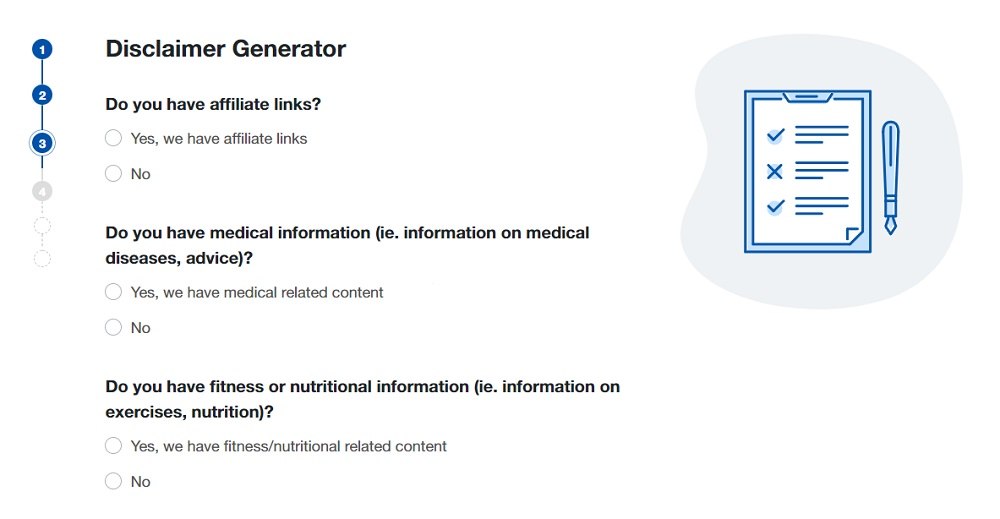 Answer questions about business practices - Step 3" width="1000" height="519" />
Answer questions about business practices - Step 3" width="1000" height="519" />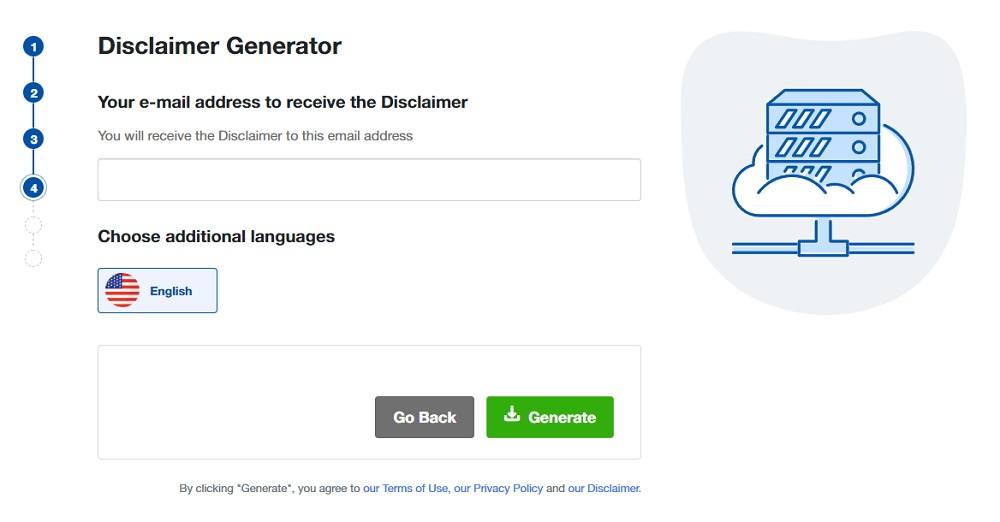 Done! You'll be able to instantly access and download your new Disclaimer.
Done! You'll be able to instantly access and download your new Disclaimer.A Disclaimer is a statement aimed to address specific points regarding liability.
Disclaimers have a long legal history. They generally have two main purposes:
A warning sign is an example of a disclaimer that everyone would be familiar with.
"No trespassing" signs alert passing individuals that they are near a private land boundary and also excuse the landowner of some liability if people visit uninvited and get injured.
Sometimes the warning and limitation of liability are based on statutory law. For example, the state of Washington in the United States has a law that prevents people injured at equestrian facilities from pursuing legal damages.
Any business that boards, trains or allows the riding of horses has to have a specific sign to enjoy this protection from liability. This sign acts as a disclaimer much like a "No trespassing" sign in that it informs and specifies limits on facility responsibilities:
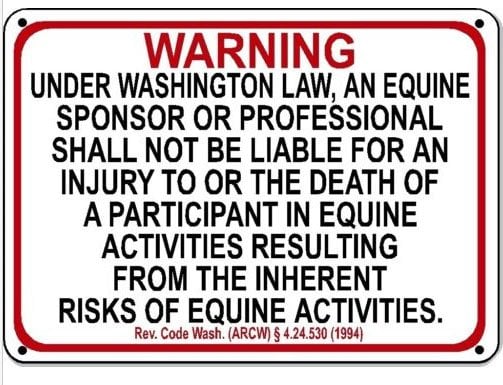
Another area where you would find disclaimers is books.
Storey Publishing places a general disclaimer in most of its works. A book by Allan Hamilton, M.D. titled Zen Mind, Zen Horse: The Science and Spirituality of Working with Horses, contains this disclaimer because Dr. Hamilton is a neurosurgeon and the book offers horse training advice along with explanations of equine neurology:
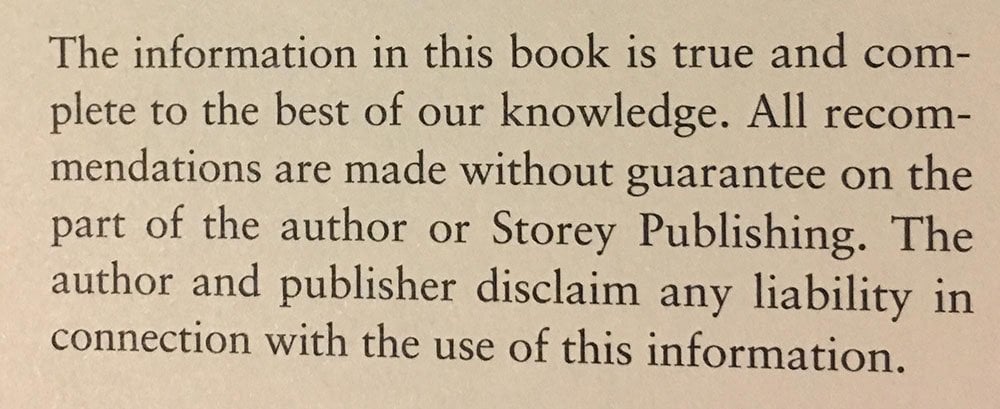
Placing a disclaimer on websites and apps has the same purpose as those employed before the internet. While the warning element remains, the primary concern is about limiting legal liability and responsibility.
A common area where disclaimers arise is on websites offering alternative health or medical advice.
iHerb sells vitamin and herbal supplements online. It's also very careful on how it represents its information and adds this disclaimer:
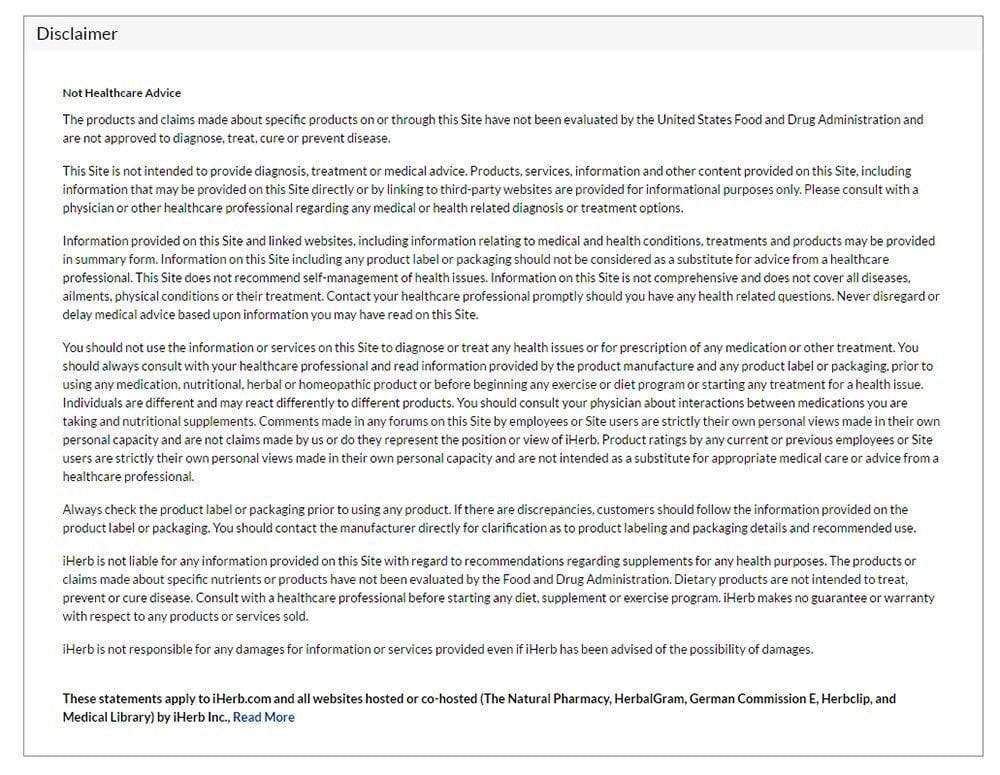
The detail in this medical disclaimer from iHerb is understandable. Supplement companies can make big claims and yet, these have to be discerned thoroughly. iHerb makes it clear that while the products are available for purchase, that does not mean they will always yield the intended benefits.
Intertek, a consulting company, has a legal disclaimer page that explains that the company provides the best information possible but will not be held liable if the user does not enjoy the intended results.
Intertek's disclaimer page is titled "Legal Disclaimer" but is really a catch-all of liability:
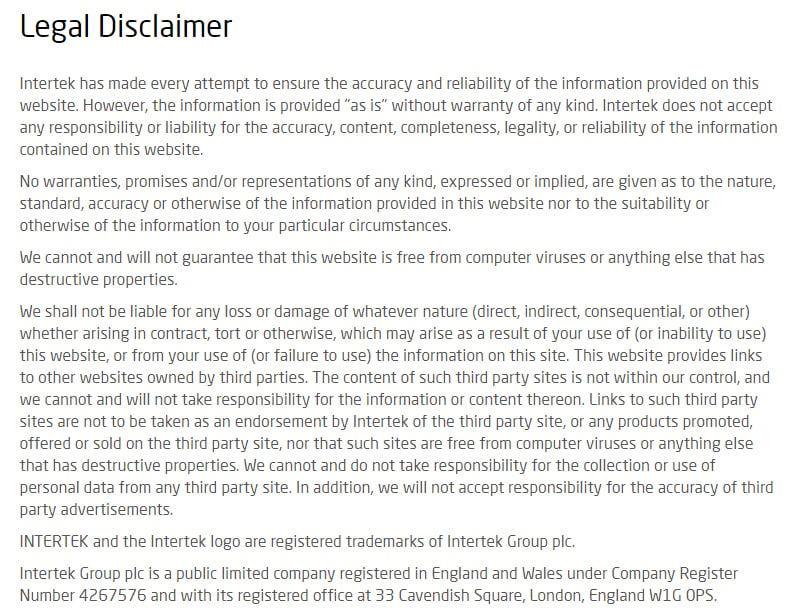
These are examples of disclaimers that are presented as separate documents. Sometimes, however, disclaimers are included in the Terms and Conditions agreements of a website or mobile app.